Stop Iran’s Nuclear Program Before It’s Too Late – Israel Tells The World
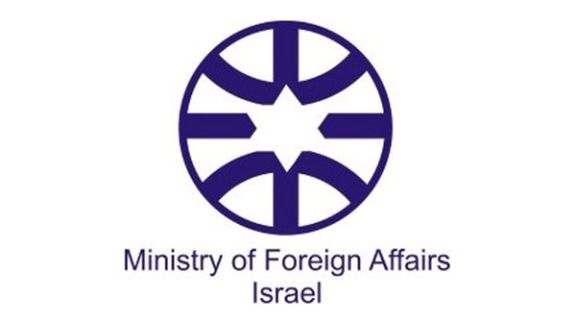
Israel has called on the international community to "stop" the nuclear program of the Islamic Republic before it is "too late".

Israel has called on the international community to "stop" the nuclear program of the Islamic Republic before it is "too late".
In a tweet on Sunday, the Israeli Foreign Ministry said that “a nuclear Iran is not a threat only to Israel, but to the entire region and the world.”
Echoing remarks by the head of the UN nuclear watchdog, the International Atomic Energy Agency (IAEA), Rafael Grossi, the ministry said, "Today what we have is a nuclear program that has grown enormously....” and a country that does not seek nuclear weapons would not enrich uranium to 60 percent.
On July 22, Grossi told Spain's El Pais newspaper that the Islamic Republic’s nuclear program is "galloping ahead" and the IAEA has very limited visibility on what is happening.
In 2019, Iran began breaching restrictions on its nuclear program following the 2018's pullout of the United States from the 2015 deal, the JCPOA, or the Joint Comprehensive Plan of Action. The process accelerated after President Joe Biden’s administration signaled it was ready to return to the JCPOA.
“If there is an agreement, it is going to be very difficult for me to reconstruct the puzzle of this whole period of forced blindness,” Grossi said. “It is not impossible, but it is going to require a very complex task and perhaps some specific agreements.”
Iran would like to see a nuclear agreement taking shape soon, but it will not act with emotion and haste, Iran’s foreign ministry spokesman Naser Kanaani said Monday.
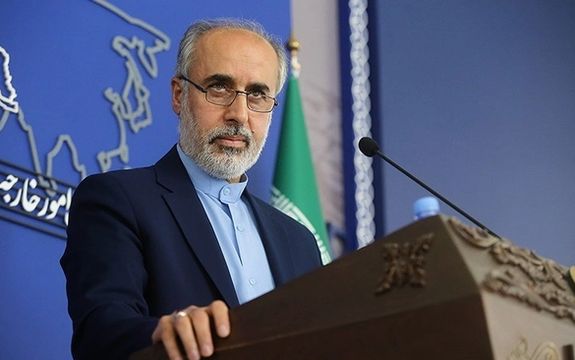
Iran would like to see a nuclear agreement taking shape soon, but it will not act with emotion and haste, Iran’s foreign ministry spokesman Naser Kanaani said Monday.
Meanwhile, the head of the country's Atomic Energy Organisation, Mohammad Eslami said on Monday that Iran will keep the UN nuclear watchdog's cameras turned off until a 2015 nuclear deal is restored, the semi-official Tasnim news agency reported.
In a media briefing, Kanaani emphasized Tehran’s often repeated slogan that it will not hinge the future of the economy and people’s well-being on the nuclear issue.
The hardliner government of President Ebrahim Raisi and its supporters, who are loyal to Supreme Leader Ali Khamenei, argue that they can manage the country despite American sanctions, and a nuclear agreement is not absolutely necessary to deal with economic challenges.
However, as annual inflation approaches 60 percent and food price inflation is close to 90 percent, critics argue that a deal to restore the 2015 nuclear agreement, the JCPOA, is a prerequisite. Without lifting sanctions imposed by the United States and boosting oil exports and trade, the government simply has little money to deal with the economic crisis.
The United States imposed oil export and banking sanction in 2018 when former President Donald Trump withdrew from the JCPOA, demanding a stronger agreement. The move drastically weakened Iran's economy, which is heavily dependent on oil revenues.
The Raisi administration’s claim of dealing with challenges despite sanctions is a public posture to show the West that it is not desperate for a deal. On the domestic front, few believe that the situation will improve as they see that real food prices have doubled and tripled since the beginning of May.
But since the Biden administration took office, Iran has been able to increase its oil exports, mainly to China and many believe it is pinning hope on the additional income to weather out the storm and continue expanding the nuclear program.
Kanaani, however, did not dash hopes for an agreement saying that discussions do take place through “communication channels.”
A local news agency asked the spokesman about a recent statement by the head of the UN nuclear watchdog, the International Atomic Energy Agency (IAEA), Rafael Grossi, who said he had “very limited visibility,” of Iran’s nuclear program. He also said that only a country with military intentions would enrich uranium to 60-percent purity.
Kanaani responded with defiance. “We call upon him to refrain from politically motivated statements,” he said, and added that Grossi's remarks were "unprofessional, unfair and unconstructive views."
Iran began restricting IAEA’s monitoring access in early 2021, as the incoming administration of President Joe Biden signaled its readiness to return to the JCPOA and lift sanctions. Tehran announced more restriction after the IAEA Board of Governors passed a resolution on June 8 to censure Iran for lack of cooperation in its investigations.
Grossi told the Spanish newspaper El Pais June 22 that his agency’s ability to monitor Iran’s nuclear activities had substantially decreased as Tehran’s nuclear program is “galloping ahead.”
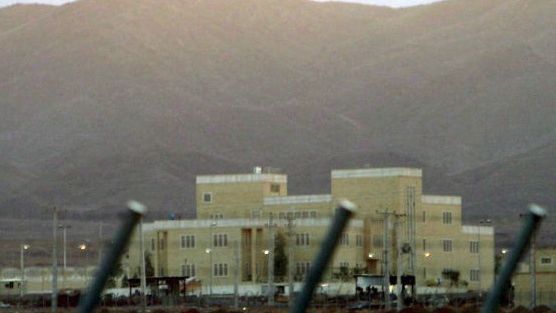
Iran claims an “Israeli-linked” sabotage team it recently arrested had planned to destroy a sensitive facility in the central Iranian province of Esfahan.
According to a Sunday report by Nour News, a website affiliated with the secretary of Iran's Supreme National Security Council (SNSC), Ali Shamkhani, “These individuals (Mossad-linked agents) had identified a sensitive center in Esfahan, planted strong explosives there, and only a few hours were left until the explosion” when they were arrested.
The report added that the members of the network were trained in an African country for months and had simulated the planned operation several times.
It claimed that Iran’s security forces were monitoring the team even before it arrived in Iran and all its members and contacts both inside and outside the country were identified by the Intelligence Ministry several months before they entered the country.
The report did not disclose the name of the site, but Esfahan is home to Iran’s largest multi-purpose nuclear research complex with about 3,000 scientists. It also operates a conversion facility, a fuel production plant, a zirconium cladding plant, and four small nuclear research reactors -- all supplied by China – as well as other facilities and laboratories. Moreover, it could also mean the all-important Natanz uranium enrichment facility, which is located in the province of Esfahan.
Natanz was the target of two major sabotage acts in the past two years- in July 2020 and April 2021, both ascribed to Israeli intelligence.
In January, Iran told the International Atomic Energy Agency (IAEA) that it would move production of crucial nuclear components from a plant in Karaj to a facility in Esfahan. The Karaj TESA plant was producing parts for uranium enrichment machines or centrifuges.
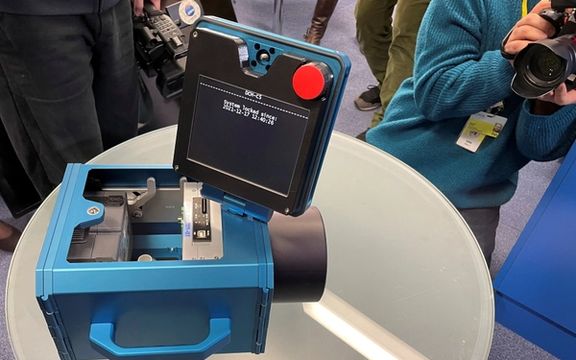
In April, Tehran said that before the 2015 nuclear deal is revived it will not give the IAEA access to data from cameras at the new centrifuge parts plant in Esfahan.
In a short announcement from the Intelligence Ministry on Saturday, July 23, Iran claimed that “a network from the spy agency of the Zionist regime who were sent to the country for terrorist operations” were identified and arrested.
"This network's members were in contact with (Israel's) Mossad spy agency through a neighboring country and entered Iran from (Iraq's) Kurdistan region with advanced equipment and strong explosives," the ministry said.
Since March, Iran has at least three times made similar claims without presenting any evidence or information about what investigators discovered from the persons allegedly detained.
The intelligence ministry’s announcement came two days after Iran International in an exclusive report on July 21 said that Israel’s Mossad had captured a senior Revolutionary Guard official on Iranian soil and interrogated him about weapons shipments to Iran’s proxies in the region. After the interrogation the man was released.
Since mid-2020 a series of high-profile mysterious attacks have hit Iran’s nuclear and military installations around the country, widely believed to have been Israeli sabotage operations. In November 2020, Mohsen Fakhrizadeh, a key figure in Iran’s controversial nuclear program was assassinated in a complex operation on the outskirts of Tehran. His killing resembled more a Hollywood thriller, with a heavy, remotely controlled gun mounted in the back of a pickup truck that fired on Fakhrizadeh’s car on a highway.
In May, several IRGC officials were killed or died in suspicious circumstances, prompting Tehran to blame Israel, which has never officially taken credit for these operations.
In June, a major reshuffling of IRGC intelligence and counter-intelligence leadership took place, widely attributed to reported Israeli infiltration and the inability of Iran’s security bodies to deal with the situation.
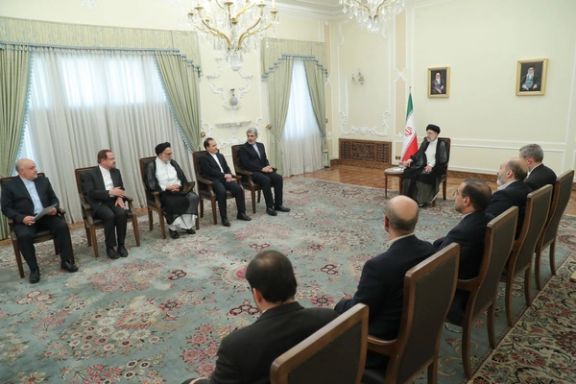
The Islamic Republic appointed Sunday Saeed Iravani, a former deputy of the country’s top security official Ali Shamkhani, as Iran’s new ambassador to the United Nations.
Iravani, who will replace Majid Takht-Ravanchi, served as a deputy of Shamkhani, the secretary of Iran's Supreme National Security Council (SNSC), for nine years. Majid Takht-Ravanchi was among the last officials appointed by former foreign minister Mohammad Javad Zarif, who led the Iranian negotiations with P5+1 countries which produced the 2015 nuclear deal – or the Joint Comprehensive Plan of Action.
Iravani also served as Iran’s chargé d'affaires in Iraq and secretary of Iran’s Strategic Council on Foreign Relations. He has career overlaps with current lead nuclear negotiator Ali Bagheri-Kani – as both served as SNSC deputies. He is the first Iranian ambassador to the UN with extensive SNSC experience. Iravani's diplomatic assignments -- spearheading the Saudi-Iranian dialogue in Baghdad and his experience as chargé d'affaires -- have been more regionally focused than his predecessors to date.
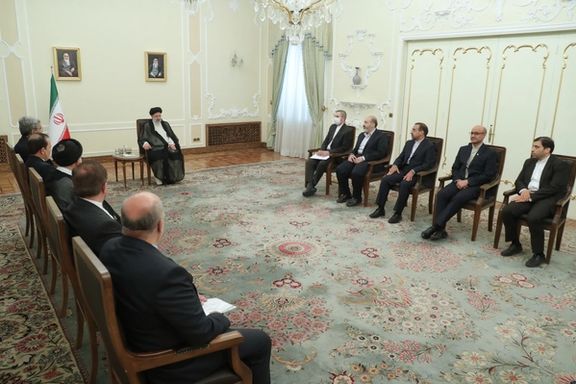
President Ebrahim Raisi also appointed new ambassadors to six countries – Georgia, India, Lebanon, Czech Republic, Poland, and Sierra Leone -- on Sunday, practically cleansing the diplomatic roster of appointees from the administration of former president Hassan Rouhani. A cleric, Khalil Sadati Amiri, was named as Iran's ambassador to Sierra Leone.
Moreover, Raisi appointed Ali Bahraini as Tehran’s permanent representative to the UN Office and other international organizations in Geneva.
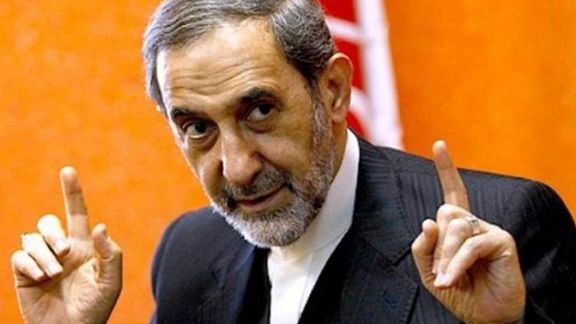
Although Iran had declared a pro-East policy in 2018, its reliance, particularly on Russia became more evident during a visit by Vladimir Putin on July 20.
Following the visit, which Washington said "proves Moscow's isolation," and some Iranian analysts characterized as an indication of Iran's isolation, reformist daily Arman Emrooz in Tehran summarized both sides' arguments in a Saturday, July 23 report that called Iran's move an unwelcome development.
Nonetheless, Supreme Leader Ali Khamenei’s supporters have exhibited endless fascination with Russia and Putin's charm offensive during his latest visit.
The Supreme Leader's senior international affairs adviser Ali Akbar Velayati, who was dozing off while Khamenei and Putin were talking through interpreters, has said: "What do reason and wisdom tell us? Should we go toward the West that has always been our enemy? Or should we go toward the East that has always helped us as much as it could?"
Velayati claimed elsewhere: "Putin believes in spirituality. Previous Kremlin leaders were Godless, but now from Putin to lower officials are either Christian or Muslim."
As if this was not enough, Assembly of Expert member Ahmad Hossini Khorasani said: "Putin's modest gestures in front of Khamenei was like a pupil's sitting in front of his teacher, and that is an honor for Islamic Iran."
International relations expert Ali Bigdeli, however, told Arman Emrooz that that Iran's reliance on the East is a strategic mistake and certainly against Iran's national interests. However, he noted that anti-Americanism has always been part of Tehran's policy since the 1979 revolution, but the government of President Ebrahim Raisi has escalated the anti-US policy.
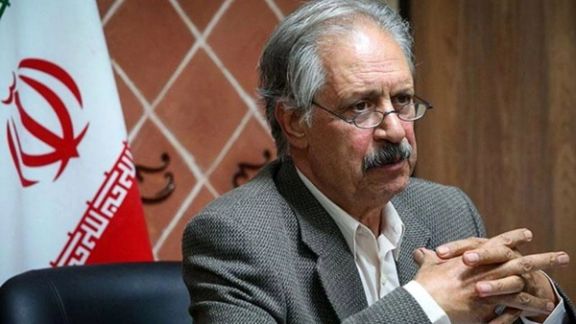
Further evidence of Bigdeli’s criticism emerged Sunday when two hardliner media outlets called for “pre-emptive” defense against the West and in support of Russia in the Ukraine war.
Referring to Russia's track record of broken promises and hypocrisy in its relations with Iran before and after the 1917 Russian revolution, Bigdeli said that Iran should have taken a lesson from Russia's invasion of Ukraine.
Meanwhile, Bigdeli warned that Russia is not capable of meeting Iran's economic needs and noted that Moscow has already failed to fulfil its commitments in nuclear, air defense projects and other projects. Bigdlei said that the latest visit by Putin simply showed that he was isolated in the world following the invasion of Ukraine and was pretending that he has found a major ally in Tehran.
He warned that Iran should not land in Russia's lap as a result of its enmity with the West. He noted that Iran currently needs $200 billion to reconstruct its oil industry but Russia and even China are incapable of providing funding for that project.
International relations expert Hassan Hanizadeh told the daily that "Iran's ‘Looking East’ policy was a choice between bad and worse." However, he justified the move as "an outcome of broken promises on the part of the United States" and said that "Iran started to seriously align its policy with those of Moscow only after former US President Donald Trump pulled the United States out of the nuclear deal with Iran in 2018."
"As the Vienna talks ended in a deadlock, the current government of Iran is now keener to follow the Looking East policy as US sanctions badly affect the country's economy, and the West's broken promises have pushed Iran to get closer to Russia and China," Hanizadeh said.
Ultraconservative analyst Foad Izadi on the other hand argued that getting close to Russia can serve Iran's major national interests. He said pro-Western analysts describe the current situation as Iran's reliance on Russia and China, but he claimed Iran is simply maintaining relations with them and is not building reliance.
However, Izadi warned that Iran should not get itself entangled in dichotomies such as choosing between reviving the JCPOA or relying on Russia.
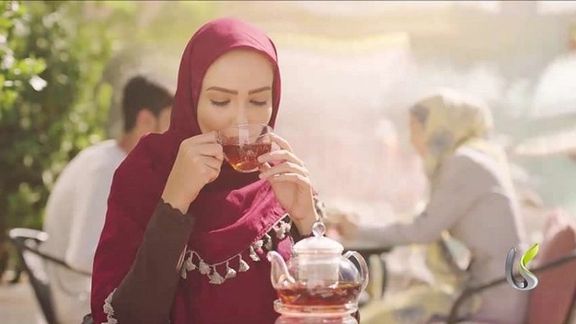
The Islamic Republic has imposed a ban on any use of female images or actors in all types of Iranian commercials and advertisements, a viral photo of the order shows.
The Ministry of Culture and Islamic Guidance announced in a letter to Iran's art and cinema schools that according to the so-called "hijab and chastity rules”, the presence of women in advertisements is prohibited from now on.
According to the letter the ban is in accordance with the rulings by the Supreme Council of the Cultural Revolution, and based on the country’s laws and regulations of commercial advertising, which forbids any "instrumental use" of women, men and children.
The ban has actually always been in place but the interpretation of "instrumental use" varies according to political and religious inclinations of particular presidential administrations.
The recent announcement of the ban comes following a controversial video of an ice-cream ad, which used close-up shots of an Iranian woman biting the chocolate-coated dessert.
The body responsible for “enjoining right and forbidding evil” in the Islamic Republic recently filed a lawsuit against the ice-cream manufacturer Domino over two controversial commercials, which it said were “against public decency” and “insult women’s values.”
The whole controversy is taking place on the backdrop of a heated debate over Iran’s enforcement of Islamic dress code or hijab in public, while many Iranian women, who wear the hijab by choice, have joined new social media campaigns this week against street patrols to force women to follow strict laws.